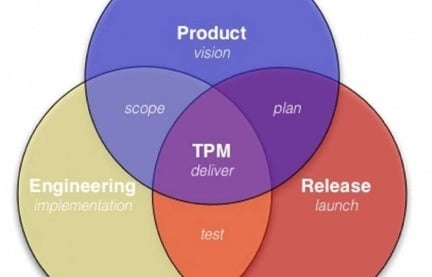Top 10 Interview Questions for Technical Program Manager (TPM) Interviews
7/17/20254 min read


Understanding the Role of a Technical Program Manager
Technical Program Managers (TPMs) play a crucial role in bridging the gap between technical teams and project stakeholders. They are responsible for ensuring that projects are delivered on time, within scope, and meet quality standards. As such, it is essential for candidates seeking a TPM position to be prepared for a variety of interview questions that assess their technical knowledge, leadership skills, and problem-solving abilities.
Core Interview Questions to Expect
When preparing for a TPM interview, candidates should anticipate questions that center on their experience, project management techniques, and understanding of technology. Below are ten common interview questions that candidates may encounter:
1. Tell me about a time you managed a complex technical project from start to finish.
- Why it’s asked: Tests your end-to-end program management skills, including planning, execution, and stakeholder coordination.
- How to answer: Use the STAR method (Situation, Task, Action, Result). Describe a specific project, your role, challenges faced, actions taken, and measurable outcomes (e.g., delivered 10% under budget or on time). Highlight technical and leadership aspects.
2. How do you handle a project that is falling behind schedule?
- Why it’s asked: Evaluates your problem-solving, prioritization, and risk management skills.
- How to answer: Explain how you identify delays (e.g., tracking KPIs), re-prioritize tasks, negotiate with stakeholders, or reallocate resources. Provide an example showing how you mitigated delays and the outcome.
3. Explain a technical concept (e.g., what happens when you enter a URL in a browser) to a non-technical stakeholder.
- Why it’s asked: Assesses your ability to communicate complex technical ideas clearly.
- How to answer: Break down the concept (e.g., DNS lookup, server request, rendering) using simple analogies (e.g., compare it to mailing a letter). Emphasize clarity and stakeholder understanding.
4. How would you design a system for [specific scenario, e.g., a live streaming service for high traffic]?
- Why it’s asked: Tests your system design knowledge and ability to handle scalability challenges.
- How to answer: Outline a high-level architecture (e.g., load balancers, CDNs, scalable databases), discuss trade-offs, and address bottlenecks like traffic spikes. Tailor to the company’s domain (e.g., YouTube for Google).
5. Describe a time you had a conflict with a team member or stakeholder. How did you resolve it?
- Why it’s asked: Gauges your conflict resolution, leadership, and interpersonal skills.
- How to answer: Use STAR to describe a specific conflict, your approach (e.g., active listening, finding common ground), and the resolution’s impact. Highlight collaboration and positive outcomes.
6. How do you prioritize tasks or projects when managing multiple programs?
- Why it’s asked: Tests your strategic thinking and resource allocation skills.
- How to answer: Discuss frameworks like Eisenhower Matrix or alignment with business goals. Provide an example of prioritizing critical tasks, balancing stakeholder needs, and achieving results.
7. What is your approach to managing risks in a project?
- Why it’s asked: Assesses your proactive risk management and mitigation strategies.
- How to answer: Explain how you identify risks (e.g., risk assessment workshops), assess their impact, and implement mitigations (e.g., contingency plans). Share an example with measurable success.
8. How do you ensure clear communication across cross-functional teams?
- Why it’s asked: Evaluates your ability to bridge technical and non-technical teams.
- How to answer: Highlight tools (e.g., Jira, Slack), regular syncs (e.g., stand-ups), and tailored communication for different stakeholders. Share an example of overcoming miscommunication.
9. Tell me about a time you failed or made a mistake on a project. What did you learn?
- Why it’s asked: Tests self-awareness, resilience, and ability to learn from failure.
- How to answer: Be honest about a specific mistake, focus on actions taken to address it, and emphasize lessons learned that improved future performance. Avoid blaming others.
10. How do you get stakeholder buy-in for a project or decision?
- Why it’s asked: Assesses your influence and stakeholder management skills.
- How to answer: Describe building trust, aligning with stakeholder goals, and presenting data-driven proposals. Provide an example where you persuaded a reluctant stakeholder and the project’s success.
Preparation Tips:
- Use the STAR method for behavioral questions to structure responses clearly.
- Brush up on technical concepts relevant to the company (e.g., cloud computing for Google, AWS for Amazon)
- Understand Agile methodologies (e.g., Scrum, Kanban) and project management tools (e.g., Jira, Trello).- Research the company to tailor answers to their products, culture, and challenges.
- Practice mock interviews to refine responses and build confidence. These questions cover the core areas of TPM interviews: program management, technical acumen, and leadership. For more tailored preparation, consider company-specific resources (e.g., Amazon’s Leadership Principles for Amazon interviews). If you’d like, I can provide sample answers or dive deeper into any specific question!
Customer reviews
Discover what our clients think about our service
HR is a great mentor! Her approach is very tailored to your specific circumstances and she does a great job of meeting you where you are in your journey. She is very knowledgeable and quick to pick up on skill gaps to help you really succeed. I'm glad to have picked her as my mentor and in the few sessions I have had with her, she has shared great tips and insights to help me with my new role.
Esther
I really appreciate HR's help along our journey. HR is really flexible, truly listens to understand my needs, and helps me set suitable goals. She's an expert on what she's doing, which really helps me have a clear picture of what I want to be in the near future and what I should do in order to reach my goal. I feel lucky to have her as my mentor in tech.
Vee
